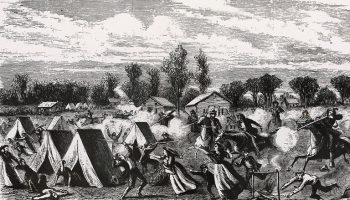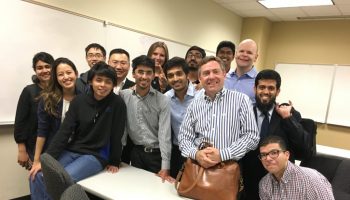
If you summarized one of many messages in our AWS program in a single sentence, what can it's?
Perkins: It is a point that hopefully ought to be obvious to everyone by now. That's: Gender equity isn't just local or in your area; it's a global issue. That is something that all of my students understand, and that I've experienced myself within my own travels.
Where perhaps you have traveled?
Perkins: I am a member of the board of the International Center for Research on Women (ICRW), which is headquartered in Washington, D.C., and it has regional offices in Kampala, Uganda, as well as in New Delhi, India. I also serve on the Africa and Asia committees. We have conducted research projects throughout the world on an variety of projects associated with gender equity (for additional, see icrw.org). Not long ago I had the opportunity to invest ten days visiting programs in Uganda and Tanzania with the Director of ICRW, Dr. Sarah Kambu. Most from the programs we visited were ones in villages that focused upon intimate partner violence.
What is interesting is that the projects we worked on included men and boys as participants in addition to girls and women. That's important to understand. I had an opportunity to observe and take part in discussions about women and gender studies at Makerere University in Kampala using the faculty and students from the School of Women and Gender Studies.
That trip afforded me with time to meet community activists, scholars, and funders of the several projects within the countries which i visited. It had been a powerful experience; travel and exposure to the situations of people far away can produce a deep impact-which is the reason why I've encouraged our students to visit and find out on their own.
What kinds of global travel have your AWS students experienced recently?
Perkins: Within the fall of 2021, a transdisciplinary course was team taught by me and Professor Sallama Shaker called Changing Gender Roles: A worldwide Perspective. The course centered on the United Nations Sustainable Development Goals (SDGs), and Prof. Shaker and 4 students in the class had the opportunity to visit the United Nations throughout the semester and meet distinguished economists working with the SDGs.
A month later, these students returned towards the UN to sign up within the Economic and Social Youth Council. Nirshila Chand, Community and Global Health doctoral student, and Shari Bissoondatt, Cultural Studies doctoral student, are both Women's and Gender Studies certificate students and were one of the four selected participants.
Nirshila also spent two months in New Delhi, India, last summer for an internship using the ICRW. It had been an exceptional opportunity for her to work with the ICRW on two violence prevention projects examining intimate partner violence and childhood violence as public health problems in India.
I'm also very happy with other AWS students who've committed time to staring at the challenges of gender equity abroad like Esme Taylor, who spent fourteen days in Japan last year on the Friedman grant.
In light from the increased awareness about violence and the fight for equality brought on by the #MeToo movement and thus a number of other things, how can you experience AWS' work in recent years?
Perkins: I'm proud of it; I've been proud. Our AWS students and graduates can be found serving in so many different types of roles that increase awareness and our understanding. Alumna Mariam Youssef, for example, is among three co-chairs for that Social Justice Task Force of the National Women's Studies Association. The task force has two main responsibilities: coordinating a sponsored session at the NWSA's annual conference; and editing a quarterly journal called Social Justice Quarterly.
Along with Mariam, other AWS members who have spent time better understanding the problems with gender equity today include Magdalena Suarez, who attended the Act for ladies Campaign in Washington D.C., that was sponsored through the Center for Reproductive Rights, included in an effort to lobby for the federal bill referred to as Women's Health Protection Act (WHPA). She ended up learning so much by what is at stake concerning women's reproductive rights today.
Is this the reason why you encourage students to travel round the nation and abroad: because that's the best way to become informed and understand what is happening now?
Perkins: Absolutely. For example, our AWS program was represented at last spring's Feminist Majority Foundation's awards night and the United State of Women Summit held in La. I'm also happy with students Melanie Lindsay, Madison Clark, Natesha Blessey, and Lily Rowen for taking part recently in Mount Saint Mary's Women's Leadership Conference in Los Angeles. The theme of this conference was \”The Resilient Leader: Propelling Our Ability to Lead.\”
What would you hope your students gain by their involvement off campus and abroad?
Perkins: A lot is happening on the planet now, and it is essential to know and play a part. They need to be present, be it by participating and listening -. or by lending their voices as witnesses and scholars.
Not long ago, we welcomed guest lecturer Dr. Suzanne Petroni, a renowned expert in gender equity in Global Health insurance and Development internationally. During her lecture-titled \”The Missing Link: Gender in International Development\”-she underlined what's at stake. She asserted it's essential to keep gender central to the growing international development initiatives.
If that's the case, then our AWS community will do everything we can to make sure that it will.




